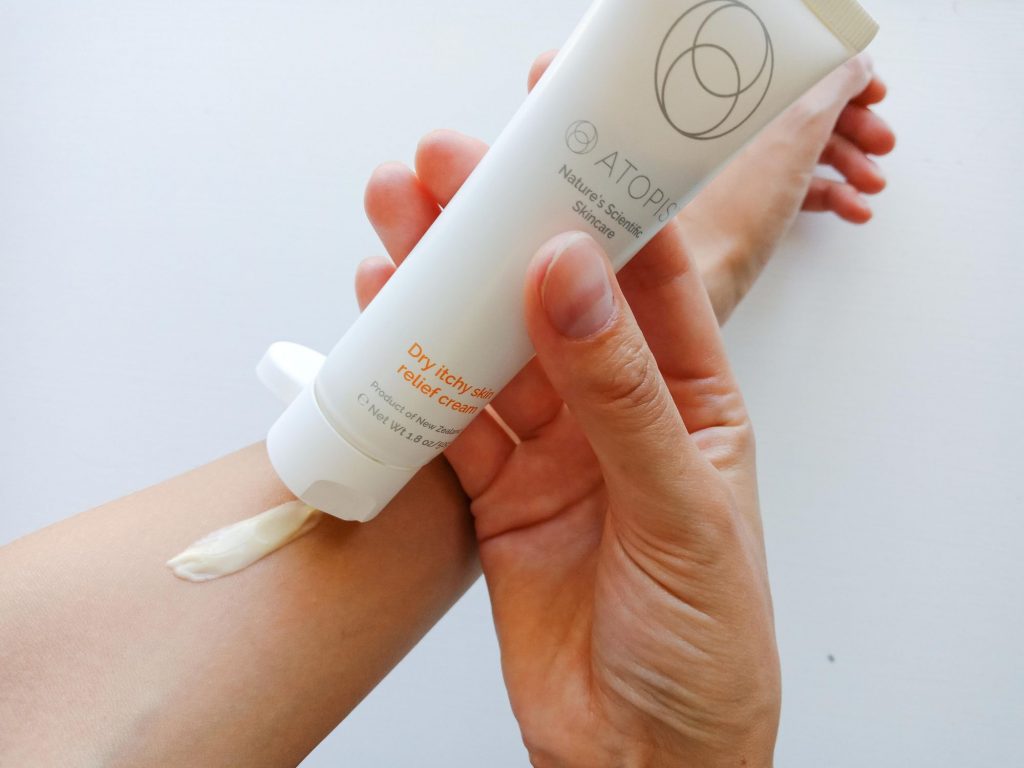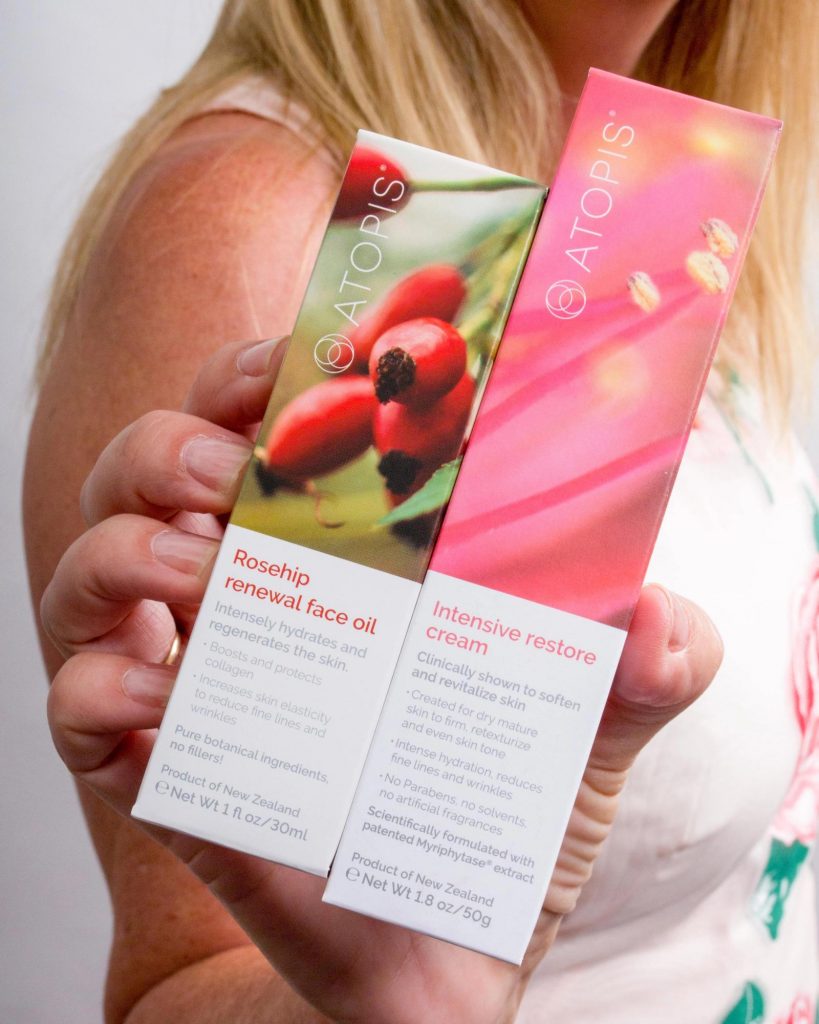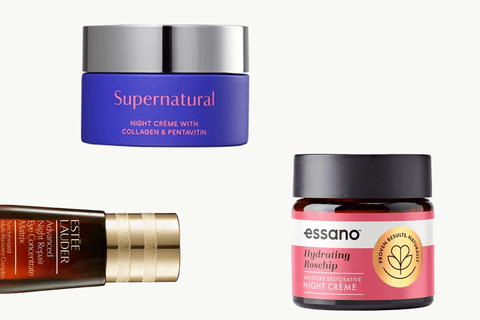Dr Iona Weir has combined natural ingredients with her groundbreaking science to create an anti-ageing treatment that has gone global.
After Dr Iona Weir developed rosacea in her twenties, leaving her face red, puffy and irritated, she went through seven doctors in 15 years to try and get to the bottom of the problem. Nothing worked. An often-misdiagnosed skin condition, rosacea most commonly affects women in their twenties, thirties and forties and can cause extremely red, raised skin on the face, which is difficult to repair.
During this time, Dr Weir’s science career was flourishing. She had become a global expert in plant medicinal properties for both pharmaceutical and supplementary products. She was even interviewed for a TV news segment about her work but, because of her skin condition, the experience didn’t go well. “The make-up team had put so much make-up on me to try and cover the rosacea, but it irritated my skin and made it incredibly hot and flushed. It was awful,” she recalls.
Tired of waiting for answers, Dr Weir put her background in cell biology to work. In the early 2000s she had been working on a natural product called Eczacol, a botanical plant extract that she developed into a pharmaceutical oral drug to heal eczema.
The drug went through initial FDA registration but was later shelved by an investing pharmaceutical company. Dr Weir turned this into a positive, putting her discovery of the link between gut health and the skin microbiome to work, to heal rosacea, eczema and acne and reduce the signs of ageing through a topical cream.
Her extensive scientific background came in handy. She had spent 20 years investigating differences in plant and human programmed cell death and immunology pathways, and discovered the ability to reverse cell death, which earned her international recognition.
With rosacea and eczema scientifically linked to changes in the skin microbiome of bacteria, fungi, yeast and skin mites, Dr Weir decided to develop a face cream with a multi-faceted botanical ferment that could boost immune function and control apoptosis (cell death) at the cell level to transform the skin deep within.

She worked tirelessly in the lab, inventing a unique fermentation technology using plant enzymes called Myrecil. She launched the Atopis skincare range in 2017 to treat issues including rosacea, acne, skin ageing and eczema.
With clinical trials in the US and New Zealand, it’s been scientifically proven to create retinoid-like activity, boost hyaluronic acid production and rebalance the microbiome, for healthy, radiant skin.
This is groundbreaking science… and it’s 100% plant-based using New Zealand botanicals
This is groundbreaking science – a skin cream which offers the benefits of retinol (the gold standard in anti-ageing) by boosting hyaluronic acid levels without the side effects! And it’s 100% plant-based, using New Zealand botanicals. Wanting to find a cure for her own rosacea has spurred Dr Weir’s work, but the biochemist says discrimination has also fuelled her desire to succeed.
“The #MeToo movement we’ve seen in recent years really hits home because most women I worked with had these types of experiences in the male-dominated field of science.”
“When I finished university in the 1990s, I was hired in the graduate programme along with four guys and two women. I found out that the guys started on incomes 25% higher than us women and that continued throughout my career. Later, when I was a senior scientist and team leader we hired a PhD graduate to work for me, and the management team paid him 20% more than me. When I complained, nothing was done about it. I was so shocked, it was awful, so I quit!”
It was a common theme for many of her female colleagues. “I recall it taking a lot of energy to fight this stuff; it was tiring. Women called me determined, men called me difficult. Back then the situation was designed in a way that, as a woman, you just didn’t win.”
Her tenacity and determination to succeed and stand up to injustice has held her in good stead and she certainly noticed a shift in attitudes when she moved out of the public sector.
“In the private sector, I was blown away, I didn’t need to hide pregnancies or miscarriages and had the freedom to work from home and then bring my babies into the lab while I worked. “I can remember a board meeting where I was doing a presentation on bull sperm sorting and ended up needing to breastfeed while giving the presentation. It was liberating.”

Times are changing, but there’s still work to be done to ensure equality continues, she says. “As CEO of Atopis, I have a completely different experience this time around as leader in business. The male chair I have supports me and backs me, and we’ve brought on a female director with incredible business experience – it’s a dynamic, supportive and diverse team.
Creating a company which is respectful and caring of staff is important to me because of what I have experienced.” This year is going to be another huge one for Dr Weir, as her research moves into using new 3D skin cell assay technology at the University of Auckland. And with sales spreading through the US and soon Asia, this clever Kiwi is set to take the skincare world by storm.
Dr Weir is currently mentoring three businesswomen who are founders of start-ups in the science field. She reflects, “It’s extremely satisfying and a chance to share my experiences and learnings, and give back.








